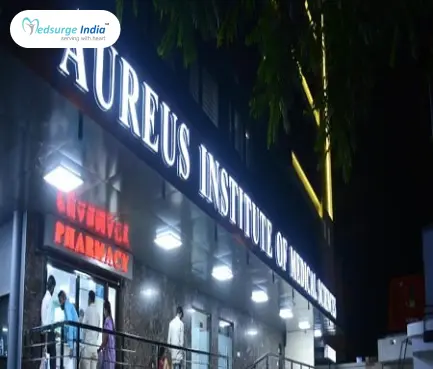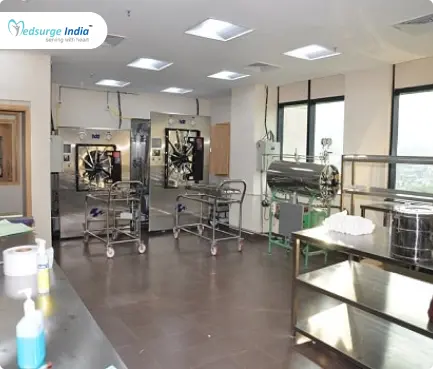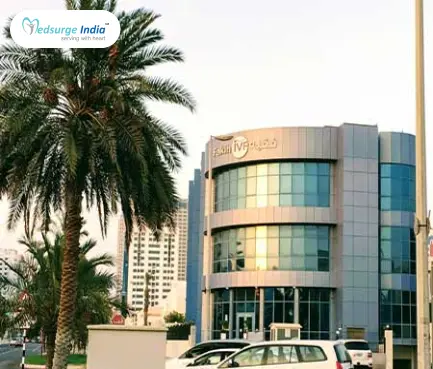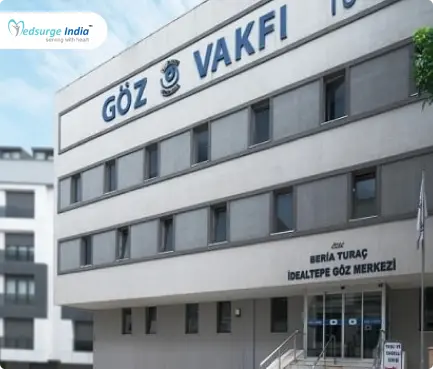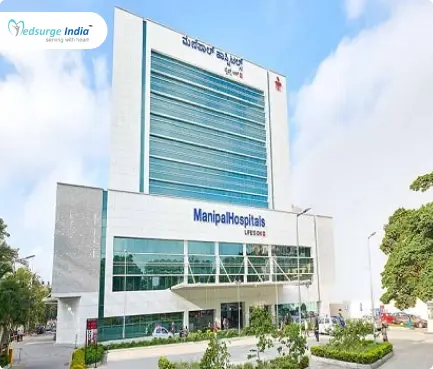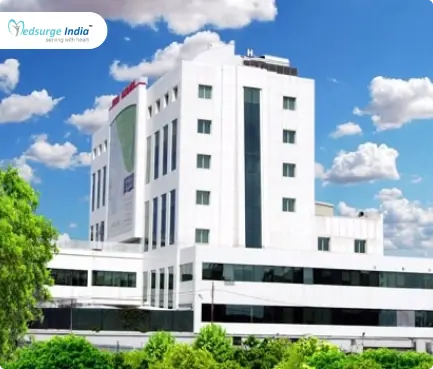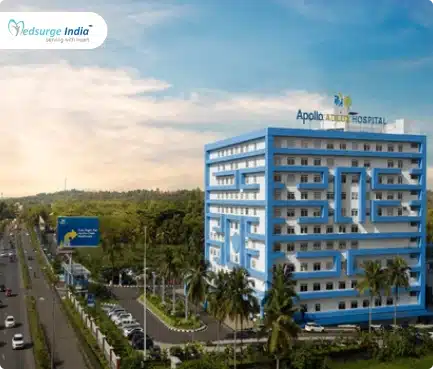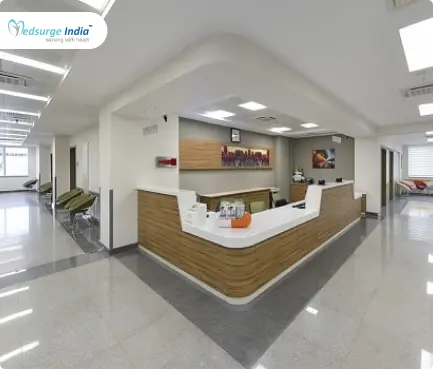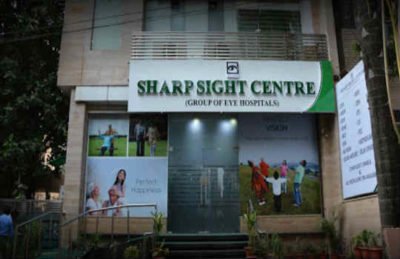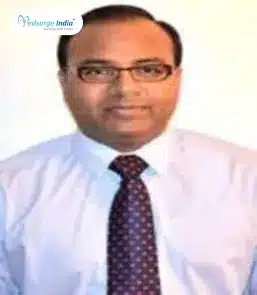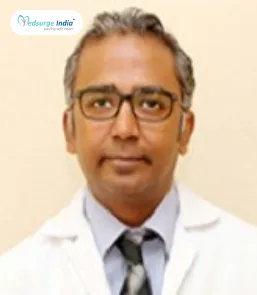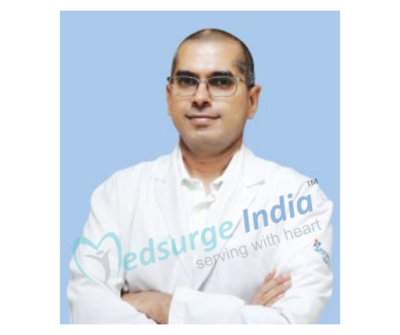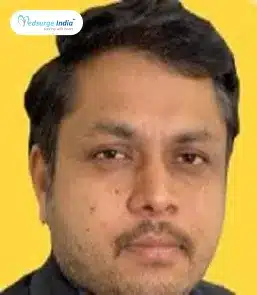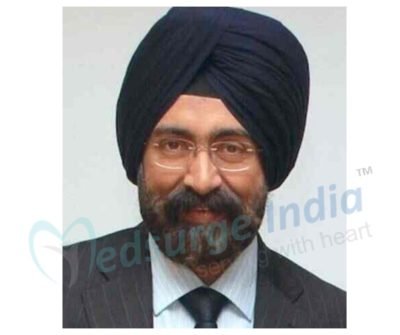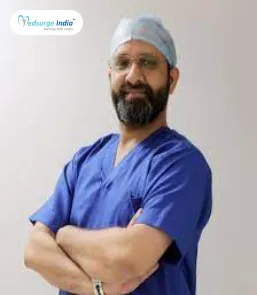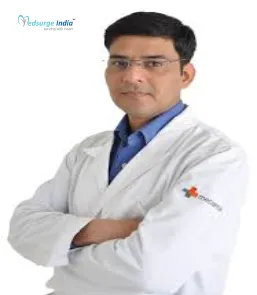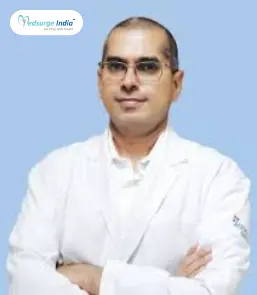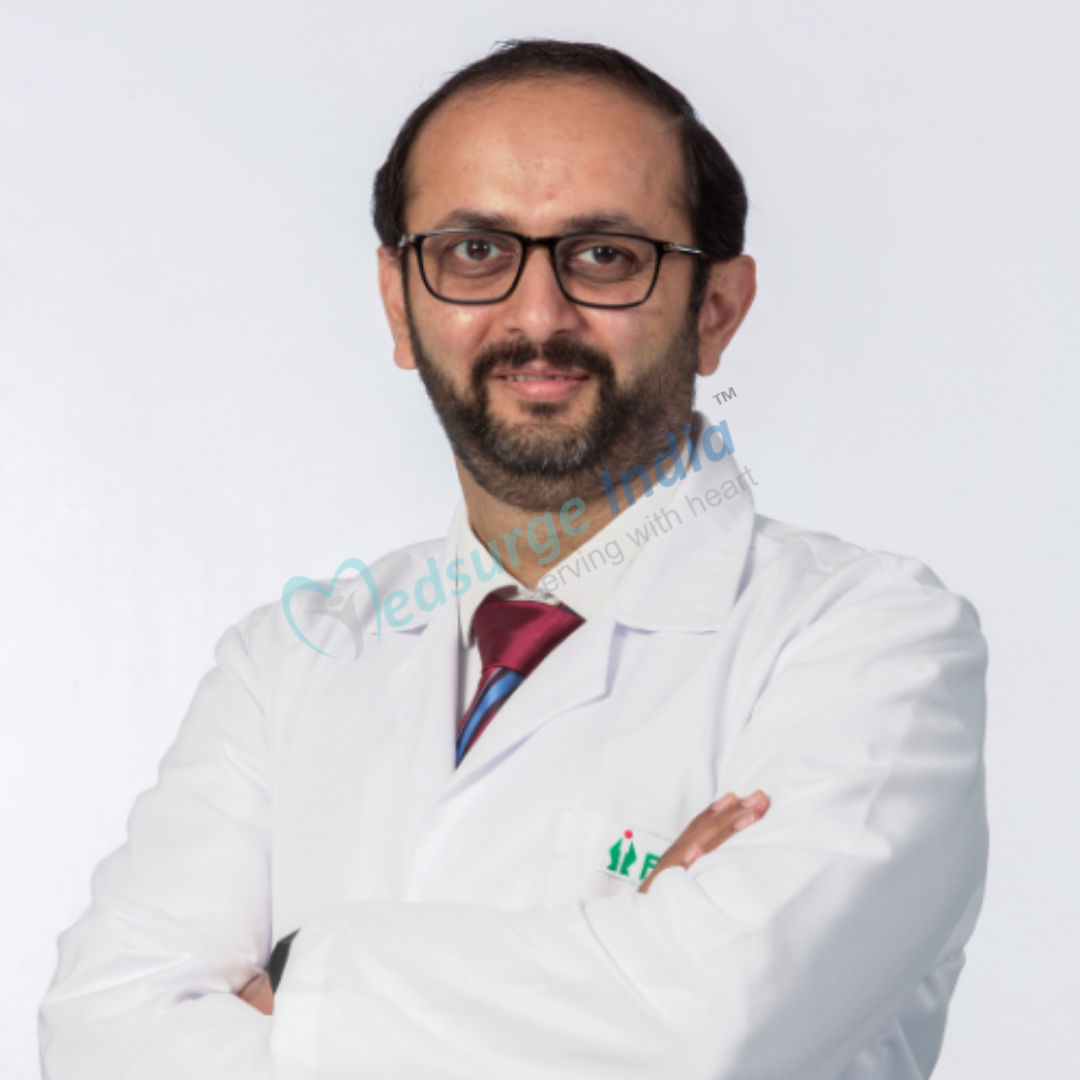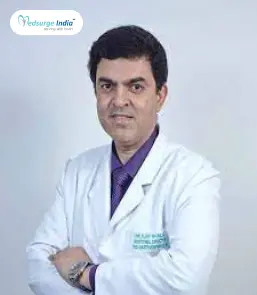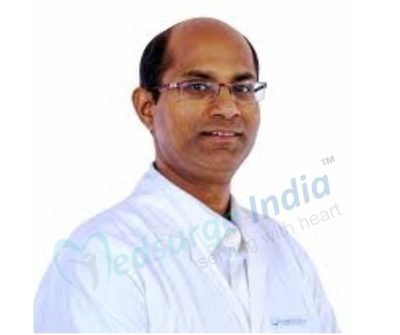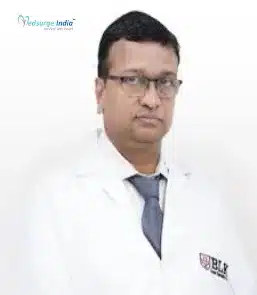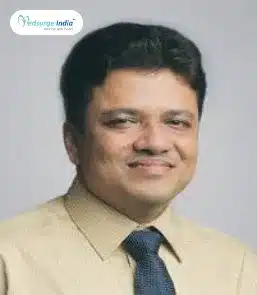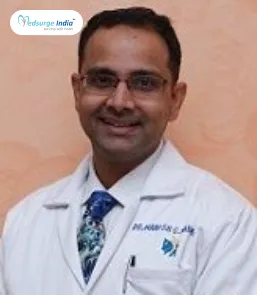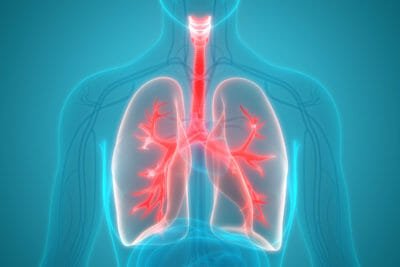
Lung Transplant in India
The lungs are some huge, air-filled, spongy organs on each side of the chest (thorax). Carbon and oxygen dioxide exchange between the blood & air is the primary attribute of the chest. For life, oxygen is quite needed, therefore the lungs provide the body with oxygen as well as extract co2.
A lung transplant is a surgical procedure that is used to treat respiratory diseases that have curtailed lung function severely. Surgery is typically undertaken for patients with end-stage lung failure to improve their quality of life and longevity. Individuals who have severe respiratory organ illness can bring back easier respiration by undergoing a lung transplant. To decide if a lung transplant is the correct choice for you, you must read about the risks associated with the procedure, comprehend them, and visit a lung surgeon.
Lung Transplant cost in India is low compared to other countries such as America, Russia, and many more. The doctor’s expertise, together with the use of cutting-edge scientific methods at Indian institutes, are the key factors in the case’s success. Along with these advantages, one of the key elements enhancing India’s image overseas is its capacity to offer inexpensive dental Lung Transplant in India without sacrificing clinical standards.
Lung Transplant Cost In India
On average Lung Transplant Cost in India ranges between Rs. 19,21,000 to Rs. 34,25,000 (23000 USD to 41000 USD). Also, the pricing of the treatment may vary depending on various variables. Lung Transplant cost in India is comparatively low as compared with other countries even though India is one of the best medical tourism countries in the world. In terms of quality and standard, the level of medical care and services is comparable to that of the best hospitals in the world.
As there are a number of variables that affect lung transplant cost in India, this includes the type of treatment, the method employed, as well as the hospital and location of choice, the doctor’s qualifications, and so on. For this reason alone, many people come from all over the world for medical care in India for a variety of reasons, such as the Lung Transplant cost in India being much lower compared to other countries which is by far the most important.
Lung Transplant Cost In Different Cities in India
| Cities | Starting Price In USD |
| Delhi | USD 23,000 |
| Gurgaon | USD 23,000 |
| Noida | USD 23,000 |
| Mumbai | USD 24,000 |
| Hyderabad | USD 23,000 |
| Chennai | USD 23,000 |
| Kolkata | USD 23,000 |
| Bangalore | USD 25,000 |
Please note that the pricing and the treatment for Lung Transplant Cost in India will vary depending on various factors.
Factors That Affect The Cost of Lung Transplant in India
There are many factors that can affect the cost of Lung Transplant in India. Here are the following here are some variables that can affect Lung transplant Cost in India:
- Medication costs.
- Duration of treatment.
- Geographical location.
- Hospitalization expenses.
- Government policies and subsidies.
- Medical tourism packages.
- Hospital reputation and infrastructure.
- The expertise and experience of medical professionals.
- The type and frequency of diagnostic procedures.
- The choice of treatment modality.
In addition, the quality and level of medical care and facilities offered are on par with renowned healthcare institutions worldwide, even after factoring in the costs of accommodation, meals, and transportation. Moreover, under the guidance of highly proficient doctors, Medsurge India ensures that patients receive the most affordable Lung Transplant Cost in India.
What is Lung Transplant
Lung transplantation is a procedure done to clear away from the individual a dysfunctional and diseased lung and change it with a different person’s nourishing lung. For one lung or even for each, surgical treatment could be performed. It’s feasible to do lung transplants on individuals of just about all ages, from newborns to adults as much as sixty-five years of age. Lung transplants are usually completed for people most probable to die from lung disease.
When is a Lung Transplant Required?
For patients with serious, end-stage lung disease, lung transplantation is primarily considered. Transplantation should be prescribed for anyone who seems likely to die without surgery and there are no other choices available. The most prevalent lung disorders that people undergo lung transplantation for are:
For individuals with serious, end-stage lung disorders, lung transplantation is largely thought of. Transplantation must be prescribed for anybody that appears more likely to die with no surgery and you’ll find no other options offered. Probably the most common lung problems that individuals experience during lung transplantation are
- Bronchopulmonary dysplasia or chronic obstructive pulmonary disease (COPD)
- severe cystic fibrosis (CF)
- pulmonary hypertension
- alpha-1 antitrypsin deficiency (AAT deficiency)
- pulmonary fibrosis
- extreme heart disease
- other diseases: other conditions may also cause significant pulmonary damage, such as
- sarcoidosis
- histiocytosis
- lymphangioleiomyomatosis
- some hereditary conditions.
Candidate Eligible For Lung Transplant:
Patients with end-stage lung illness, which frequently involves the following conditions: may consider lung transplantation.
- no response to conservative therapy
- limited life expectancy (less than two years)
- seriously impaired lifestyle and exercise tolerance
- oxygen dependency
- less than:
- single lung transplantation: less than 75 years of age
- double lung transplantation
- double lung transplantation
Lung Transplant Treatment in India
One of the most desired destinations for medical tourism is India. Not only because the country houses hospitals with advanced infrastructure and skilled and well-established doctors with modern medical services, but also because of the cost-effective quotient of medical Consequently, it helps overseas patients. Looking at all the points not only lung transplant in India but the treatment of all types is popular for patients that are looking for treatment in India.
The lung transplant hospitals in India, to name a few, are also fitted with modular, infection-free procedure theaters, cath laboratories, blood banks, life-supporting ambulances, pharmacies, specialized emergency departments, leisure rooms, and multi-cuisine cafeterias, in addition to over 100. Also, the first lung transplant in India was performed by Dr. KM Cherian in the year 1999.
India’s lung transplant doctors in India are well-known around the world with years of experience and study. They receive over a thousand patients a year worldwide and have been consistent in offering the best care.
Get Free Cost Estimation
Procedure
Transplant Procedure
The Test Required Before The Transplant
The patient is recommended to pre-evaluate all prior medical histories, X-rays, biopsy slides, surgical reports and a list of medications. Some or more of the following diagnostic tests are usually carried out during the assessment in order to balance and to update the previous tests.
Psychological and social assessment-this test mostly includes stress control, financial difficulties, social problems and support from family and friends.
A blood test-this is important to find a suitable donor match.
Medical test- this is performed to determine the patient’s general health. These tests include X-rays, CT scans, ultrasound, pulmonary function tests, pulmonary biopsy, etc.
For a Lung transplant in India, the transplant process typically takes 4 to 12 hours, which depends on the seriousness of the situation. it is performed under general anesthesia. Patients are required to remove all the ornaments and change them into the hospital gown they are issued. The patient is exposed to an intravenous line and a catheter. During the process, a catheter would be inserted in the bladder to remove the urine.
- The patient must lie on the operation table,
Single transplantation: the patient must lie on the side of the transplantation.
Bilateral sequential transplantation: the patient must lie on his back with his hands above his head.
- Incision: made on the chest,
Single lung transplantation: incision on the side where the lung has to be transplanted.
Bilateral transplantation: incision on the side where the lung has to be.
- It will then replace the diseased lung with the lung of the donor. The new lung would be connected to both the nerve and the blood vessel.
- It would be done with surgical sutures or surgical staplers to close the incision. To protect the incision.
- A bandage is placed on the site of the incision.
- There will be a few tubes connected to the chest to allow liquids, blood and air to be pumped from the chest.
After the Lung Transplant in India
Full recovery is different from person to person after a lung transplant. People can also leave the hospital within a week, depending on the situation. To recover from a lung transplant, a minimum of 3 months is needed. Patients need to go for follow-up appointments on a weekly basis for around four weeks in the second month.
In the ICU
- The heart rate, blood pressure, respiration and oxygen level of the patient will be continuously monitored.
- The catheter will remain in the bladder until the patient can pass urine on his own.
- Blood tests will be taken several times to confirm the status of the new lungs.
- Once the breathing and bladder tube has been removed.
- One can switch to a regular liquid diet and then to a semi-solid, anti-rejection.
At Home
- When washing, make sure the incision site is dry and clean.
The patient must be vigilant:
- Blood screening
- Pulmonary function test
- Chest
- X-ray
- A biopsy will be followed up for (lung)
Recovery
- After the procedure, the patient should stop pushing, dragging or lifting something heavy for the first six weeks.
- To build up their resilience, patients will be advised to conduct exercises.
- Four to six weeks after your transplant, once your chest wound has healed and you feel well enough; the patient should be able to drive again.
Immunosuppressants
Patients are recommended to take immunosuppressants for the remainder of their lives following lung transplantation. This is because there is a possibility that the body can recognize the new lung as a foreign organ and that it can be attacked by the immune system. This is understood as rejection.
Mostly immunosuppressant therapy is done in two ways:
Induction treatment: In this therapy, shortly after the transplant, the patient is given a mixture of high-dose immunosuppressants, which can weaken the immune system. In order to stop infection, this patient will be kept on antibiotics and antivirals.
Maintenance therapy: A mixture of a low dose of immunosuppressants is administered to the patient. This is given as a maintenance treatment for the.
Side effects:
- Mood changes such as depression or anxiety
- Diarrhea
- Insomnia
- Swollen gums
- Bruising or bleeding more easily
- Convulsions
- Dizziness
- Headache
- Acne
- Extra hair growth
- Weight gain
Report immediately to the surgeon the patient’s experience:-
- Fever of 104 degrees or higher
- Redness or swelling of the incision
- Blood or fluid leaking from the incision
- Increase in pain around the incision
- Short of breath or trouble breathing
Complications
Some of the risk from the procedure are:
- Bleeding
- Infection
- Blood clots
- obstruction in the replacement lungs’ blood vessels
- Blockage of the airways
- Severe pulmonary edema
- Rejection of new lungs
Prognosis of Lung Transplant
A major treatment for individuals suffering from life-threatening lung disease or injury is lung transplantation. Most individuals claim they do not have any limits on physical activity following recovery from lung transplant surgery. Up to 5 years of survival or more than half of them work at least part-time. The most significant consideration for the transplant is age at transplant time.
Waiting list
The waiting time for a Lung transplant in India is different for each person. Waiting time will depend on
- The type of lung issue a patient has.
- The seriousness of lung disease.
- Probability of a transplant succeeding.
What to Do While You Are on the Waitlist
It is recommended to stay as safe as possible while a patient is kept on the waitlist and to be prepared for the transplant center to contact them at any time.
- Day or night.
- Informing the transplant center of any changes, such as changes in health, address or contact information, is vital for the patient.
- Employ the diet plan that the doctor suggests.
- Avoid drinking alcohol, and smoking.
Know More – Lung Cancer Treatment Cost in India
Why Do Individuals Prefer to Have Lung Transplant in India
The country has some of the best medical care facilities and services in Asia, making medical tourism in India very popular. The best Lung transplant hospitals in India provide all types of disease-related surgeries using advanced technology. Also, the Lung transplant price in India is much more affordable as compared to other states or nations around the world. An international patient can expect to pay 50-60% less for Lung transplant in India.
The best Lung transplant in India provides comprehensive appropriate treatment, including comprehensive pre-operative evaluations, minimally invasive surgical options, and post-operative rehabilitation programs. Patients can expect personalized treatment, individualized attention, and compassionate care at these medical facilities. The hospitals are accredited by top international organizations such as the National Accreditation Board for Hospitals and Healthcare Providers (NABH) or the Joint Commission International (JCI).
What to Look for When Choosing a Lung Transplant Hospital in India
Indian hospitals that perform surgery for liver transplants are well-known for their hospitality and patient care services providing the finest transplant hospital and surgeons in India. However, choosing a suitable hospital for treating Lung transplant in India can be difficult for an international patient. It is a significant decision that must be made with several factors in mind, including:
- Quality certificates and accreditations
- Hospital and transportation facility location
- Team of doctors and surgeons
- Advanced diagnostic and therapeutic equipment
- International patient assistance
How Can Medsurge India Help
Medsurge India is a prestigious support system for patients looking for doctors, hospitals, and specialized treatments. Our staff will provide you with a list of licensed, renowned, and trustworthy physicians and medical facilities in relation to your medical needs. Additionally, we offer a treatment strategy that fits your budget. Apart, we assist patients with obtaining travel authorizations, medical visas, and a multitude of other things.
The Most Important Frequently Asked Questions
Q:- How Will a Transplant Change a Patient’s Life?
A : successful transplant will improve the symptoms of lung illness in the patient. Most patients with transplants may perform the same physical activities and enjoy the same quality of life as a normal person. It is recommended that all transplant patients receive regular opioid therapy and have direct medical monitoring for their entire lives.
Q:- Is the Surgery Very Complicated?
A : Surgical complications will differ on a case by case basis.
Q:- What Is Rejection?
A : Rejection is when the immune system of a body considers and destroys the new lungs as extraneous. To track rejection, patients will have periodic testing and routine doctor appointments.
Q:- Can a Person’s Old Lung Disease Return Back in the New Lung?
A : In most cases, infections don’t return to the transplanted lung. There are a few diseases that are known to have reappeared.
Top Hospitals for Lung Transplant in India
Top Doctors for Transplant Surgery
Dr. Ashish Singhal
Senior Consultant
Experience: 12 years of experience
Fortis Memorial Research Institute, Gurgaon
Gurgaon, India
Dr. Subhash Gupta
Chairman , Fellowship, MS, MBBS
Experience: 38 years of experience
Max Super Speciality Hospital, Saket, New Delhi
New Delhi, India
Dr. Rajeev Ranjan Sinha
Consultant
Experience: 17 years of experience
Kovai Medical Center and Hospital, Coimbatore
Bangalore, India
Dr. Arvinder Singh Soin
Chairman , MBBS, MS, FRCS, FRCS
Experience: 31 years of experience
Medanta - The Medicity, Gurgaon
Gurgaon, India
Dr. Swapnil Sharma
Consultant
Experience: 12 years of experience
Fortis Hiranandani Hospital, Vashi
Mumbai, India
Dr. Narendra Singh Choudhary
Senior Consultant
Experience: 14 years of experience
Medanta – The Medicity, Gurgaon
Gurgaon, India
Dr. Mahesh Gopasetty
Senior Consultant , Fellowship, MRCS, MS, MBBS
Experience: 23 years of experience
Gleneagles Global Hospitals, Richmond Road, Bengaluru
Bangalore , India
Dr. Pankaj Lohia
Senior Consultant
Experience: 19 years of experience
BLK Super Speciality Hospital, New Delhi
New delhi, India
Dr. Sandeep Guleria
Senior Consultant
Experience: 33 years of experience
Indraprastha Apollo Hospital, New Delhi
New Delhi, India
Dr. Manish C Varma
Head of Department
Experience: 13 years of experience
Apollo Hospitals, Jubilee Hills Hyderabad
Hyderabad, India

